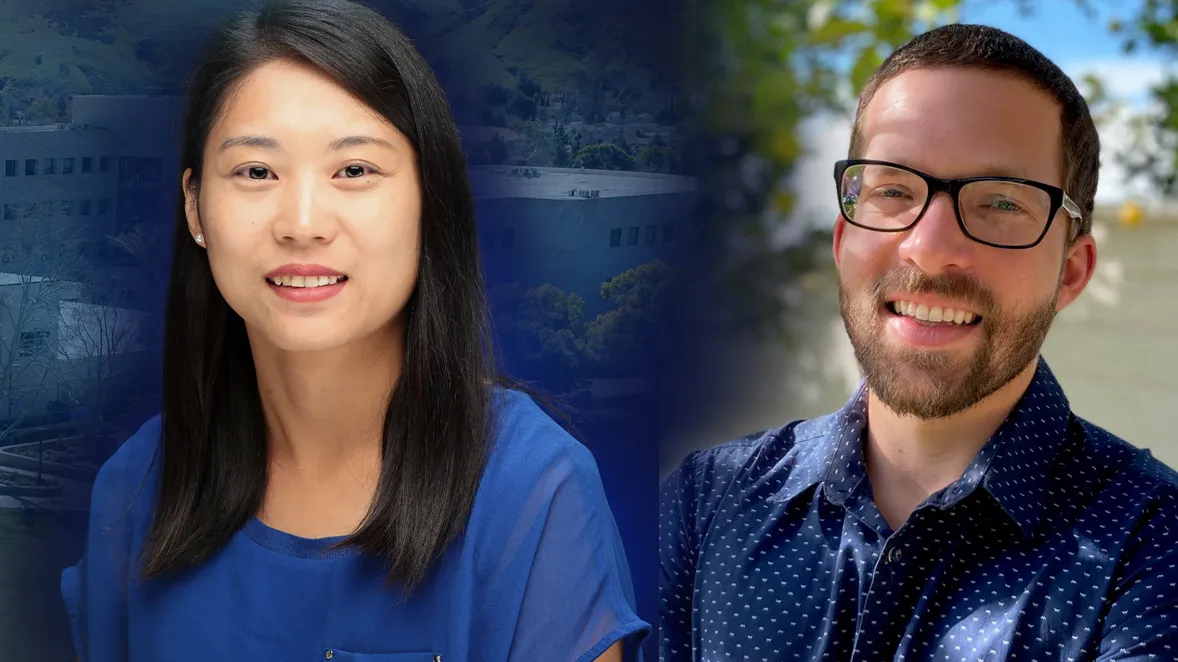Joe Gutierrez | CSUSB Office of Strategic Communication | (951) 236-4522 | joeg@csusb.edu

Cal State San Bernardino has received a $441,000 grant from the National Institutes of Health (NIH) to examine if the disruption of the gut-microbiome contributes to neuroinflammation and memory problems among individuals with Parkinson’s disease.
The four-year grant will fund a collaboration between CSUSB and scientists from UCLA, UCR, and Loma Linda University Health, said Jacob Jones, an assistant professor in the CSUSB Department of Psychology. His expertise is in neuropsychology, focusing on patients with Parkinson’s disease. Jones will serve as the grant’s principal investigator and partner with Zhaojing Chen, an assistant professor in the CSUSB Department of Kinesiology.
Chen’s primary role is to collect blood samples from participants, process the samples, and analyze the inflammatory markers. “I am looking forward to seeing the effects of gut-microbiome on neuroinflammation, which is a novel research,” said Chen.
Parkinson’s disease is a common brain disorder among older adults, up to 80 percent of patients develop severe memory/thinking problems, termed cognitive impairment and dementia. “Currently, scientists do not have a full understanding of why individuals with PD develop memory/thinking problems,” said Jones. His past work suggests that alterations of the microbiome may lead to memory/thinking difficulties.
“The microbiome is the compositions of bacteria living within humans, particularly the gut. Various bacteria are potentially good for the human body, such as lactobacillus found in yogurt, but bacteria like E. coli can be harmful,” Jones said. “As part of the new project, we will directly measure memory and other cognitive abilities as well as bacteria within the gut to see if the two are associated. The bacteria are measured within the gut by collecting a fresh stool sample and sending it to the lab for analysis.”
Jones continued, “We hope to find an association between memory/thinking abilities and gut-bacteria to identify which bacteria are more important for brain health. It can potentially lead to novel interventions focused on restoring the gut-bacteria environment.”
Students will be involved in all aspects of the study including recruitment, data collection, analysis, presenting findings at local and international conferences, and writing research papers.
Jones received his bachelor’s degree in psychology from CSU Channel Islands and continued his education at the University of Florida, where he earned his master’s degree and Ph.D. in clinical psychology. He completed a clinical residency year at Brown University and then a two-year post-doc at UCLA. He is also a faculty member of CSUSB’s Center on Aging.
Chen holds a doctoral degree in exercise physiology, is a certified exercise physiologist (ACSM_EP), and a licensed bone density (DXA) technician. She researches musculoskeletal responses to exercise, osteoporosis, sarcopenia, and fall risk in older adults. Chen is also an executive board member of the CSUSB’s Center on Aging.